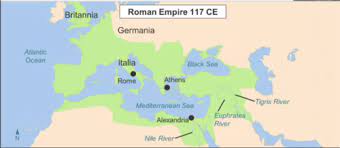The Indo-Greek Kingdom, as well known historically as the India Yavana Kingdom (Yavanarajya), was indeed a Hellenistic-era Greek kingdom that ruled over numerous parts of Afghanistan as well as the northwest regions of such Indian subcontinent during the last two centuries BC. It was governed through over 30 kings, the much more illustrious as well as successful of whom was Menander.
In 200 BC, the Graeco-Bactrian monarch Demetrius (and subsequently Eucratides) invaded India from Bactria, establishing the kingdom. The Graeco-Bactrians concentrated in Bactria (now the border between Afghanistan and Uzbekistan) as well as the Indo-Greeks inside the present-day north-western Indian Subcontinent eventually split the Greeks with in Indian Subcontinent.
Menander was perhaps the most renowned Indo-Greek ruler (Milinda). Sakala, in Punjab, was his capital. The term “Indo-Greek Kingdom” refers to a series of dynastic polities that have usually been connected particular regional capitals like that as Taxila, Pushkalavati, as well as Sagala. Other putative capitals are merely hinted at; for example, Ptolemy’s Geographia and subsequent monarchs’ naming imply that a specific Theophila inside the Indo-Greek zone of influence may indeed have been a satrapal or royal seat.
The Indo-Greek rulers mixed Greek as well as Indian languages and symbols, as seen on their coins, and fused Greek and Indian concepts, as evidenced in archaeological remains, over their two centuries of power.
The spread of Indo-Greek civilization has long-lasting ramifications, especially via the impact of Greco-Buddhist art. The Indo-Greek ethnicity was perhaps hybridised to some extent. As per Polybius, Euthydemus I was indeed a Magnesian Greek. Demetrius I, the founder of such Indo-Greek empire, was therefore of Greek ancestry, at least according to his father.
A marriage deal was made for Demetrius with such a daughter of Antiochus III, the Seleucid emperor. Later Indo-Greek emperors’ ethnicity is frequently ambiguous. Artemidoros (80 BC), for example, was thought to have been of Indo-Scythian ancestry, but he is now considered a normal Indo-Greek ruler.
Also Read: Is Sushant Singh Rajput case 2nd biggest case in India right now?

